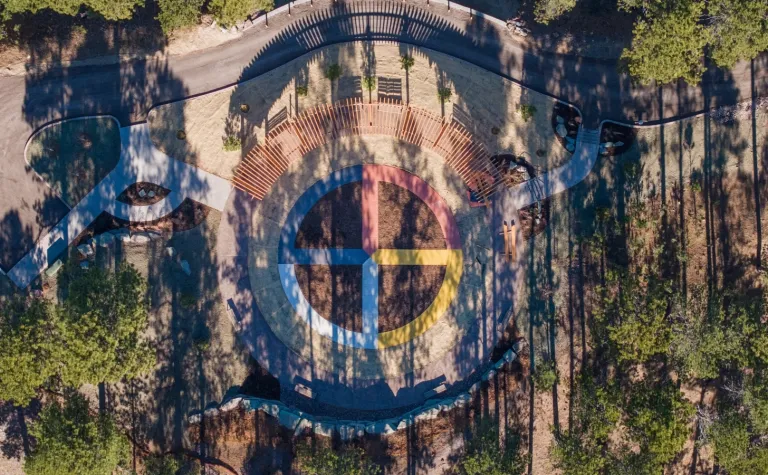Cultural Advisory Committee
The Committee's recommendations guide Sanford Lab's policy regarding diversity and cultural awareness at Sanford Lab.
The Committee works to ensure greater understanding of the diverse cultures within the region.

The Cultural Advisory Committee promotes cultural awareness in all functions at SURF. The Committee advises the South Dakota Science and Technology Authority (SDSTA) on such things as diversity in the workforce, outreach to tribal communities, and raising cultural awareness about the significance of the Black Hills to regional tribes.
The Committee’s recommendations assist the SDSTA Board and key stakeholders in developing cultural awareness activities, including education and outreach programming and recruitment of underrepresented groups.
Members of the Committee include educators, community members and state government representatives. SURF staff serve as ex officio members of the Committee.
Roles and responsibilities of the Cultural Advisory Committee:
- Increase the diversity of SURF’s workforce.
- Promote science education to South Dakota tribal students and teachers.
- Ensure current operations and future plans are sensitive to the region’s cultural heritage.
- Review Cultural Awareness Programs at SURF and prioritize initiatives.
- Review effectiveness of public and education outreach programs as they pertain to tribal communities.
Reviews are conducted by Cultural Advisory Committee members and selected external cultural experts as deemed necessary.
To improve cultural awareness at Sanford Underground Research Facility (SURF), the Cultural Advisory Committee set the following goals:
- Recruit and retain American Indians and members of under-represented groups.
- Promote science education to South Dakota tribal students and teachers as part of the Education and Outreach efforts at SURF.
- Incorporate cultural awareness training for all employees, science collaborations and visitors.
- Ensure current operations and future plans are sensitive to the region’s cultural heritage.
- Designate and build on the property an ethnobotanical garden inspired by regional American Indian cultures.
The Committee meets quarterly to review these goals, receive departmental reports and make recommendations to enhance existing cultural awareness efforts. Additionally, the Committee meets annually to review SURF’s cultural awareness program.
To date, the Committee has completed the following milestones:
- Strengthened SURF's efforts to promote job openings to American Indians and other under-represented groups.
- Increased educational programming to K-12 tribal schools.
- With approval from the South Dakota Science and Technology Authority (SDSTA), designated an area of land for the development of a medicine wheel-shaped ethnobotanical garden. (As weather allows, personnel will evaluate the work, equipment and material needed to accomplish this task.)
- Developed and implemented a Cultural Awareness orientation video/online training course for all employees, science collaborators and other visitors who come to SURF and the Sanford Lab Homestake Visitor Center.
These accomplishments have created strong management support for cultural awareness; helped the SDSTA develop a K-12 outreach program, with a strong cultural awareness emphasis; and increased interaction with all nine South Dakota tribes and 18 other land-based tribes who have cultural ties to the Black Hills area.

Čhaŋgléška Wakȟáŋ
Čhaŋgléška Wakȟáŋ, the ethnobotanical garden at SURF, honors the complicated history of the Black Hills, encourages learning across generations, and supports dialogue and reflection.
Cultural Awareness Training
The South Dakota Science and Technology Authority (SDSTA) is committed to creating awareness about the rich heritage and cultural significance of the Black Hills through cultural awareness training for all visitors to Sanford Underground Research Facility (SURF).